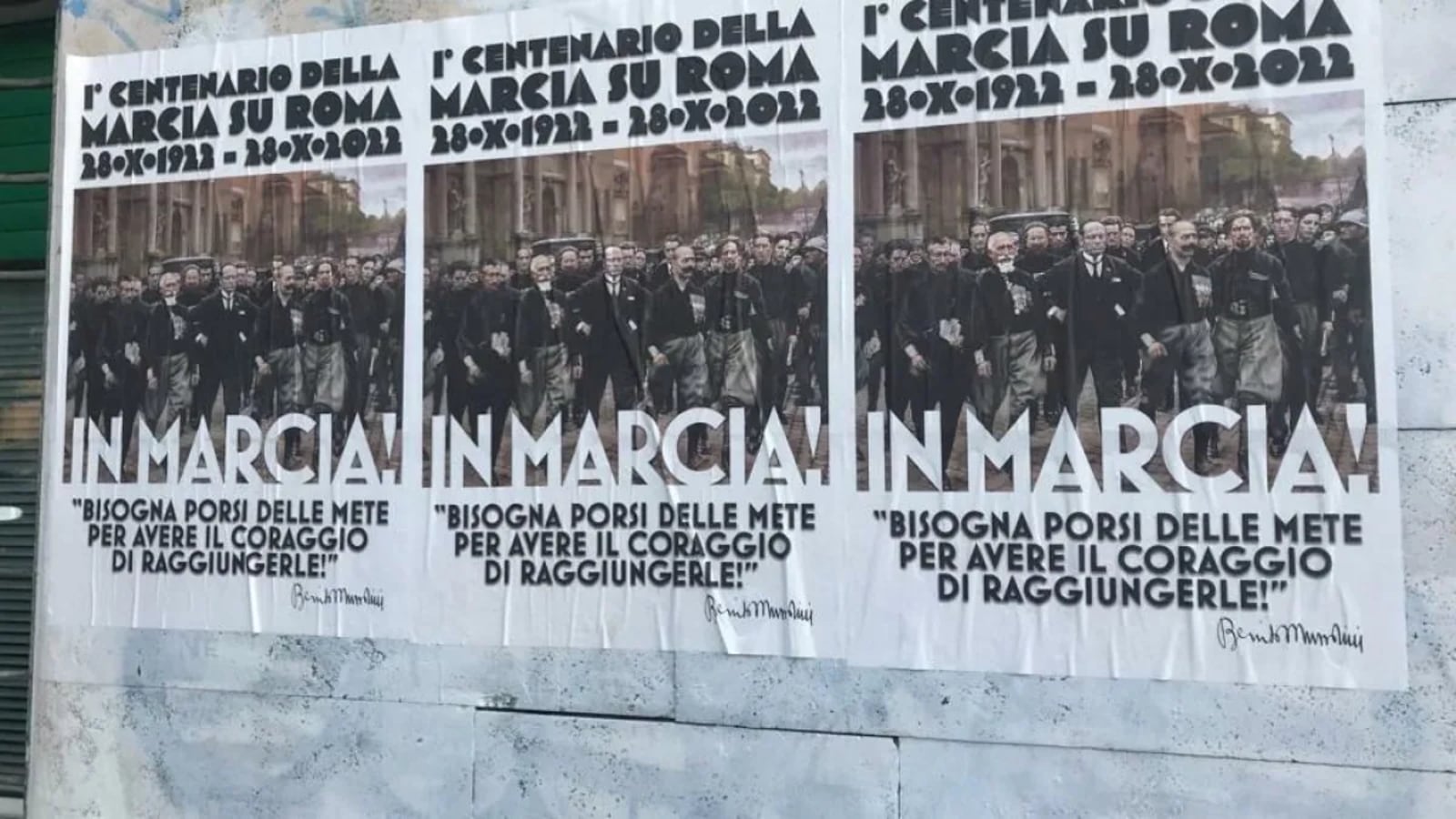ROME—For the second day in a row, residents of the Italian capital woke up to a horrifying reminder of the country’s darkest past. Posters celebrating the 100-year anniversary of Benito Mussolini’s March on Rome, which led to 20 years of fascist rule, adorned several buildings in the city center and a giant banner promising, “100 years later, the march continues” was draped over a foot bridge in front of the ancient Roman Colosseum.
Rome mayor Roberto Gualtieri quickly had them torn down, but not before neo-fascists’ selfies in front of them went viral. “Unacceptable and shameful are the illegal posters to celebrate the centenary of the march on Rome that appeared last night in some streets,” Gualtieri tweeted. “I have ordered their immediate removal.”

The posters may be gone, but there are at least a dozen monuments— including a massive obelisk in front of the Olympic Stadium with Mussolini’s name carved in white marble—the city pays dearly to maintain. There are also “il Duce” mosaics on display in the Ostiense train station he built specifically for the arrival of Adolf Hitler in May 1938.
Four hours to the north of the capital, in Predappio, where Mussolini was born and where his crypt is regularly adorned with notes and flowers, neo-fascists will gather in force to recreate the march on Friday and plan to hold three days of “festivities” to celebrate.
City officials, who turn a blind eye to trinket shops selling Mussolini and Hitler memorabilia including wine labels and key chains, told The Daily Beast they expect as many as 2,000 people this weekend to mark the anniversary. They will be met by members of ANPI, the National Association of Italian Partisans, who fought against the regime and who plan to hold their own march. Police anticipate tension. “This is a disturbing signal,” ANPI national president Gianfranco Pagliarulo told the Associated Press. “It is evident that the victory of the nationalist right will lead to a resurgence of neo-fascist provocative attitudes... We are not worried because we will fight with political weapons, and if necessary, with legal weapons.”
While Italy’s new prime minister Giorgia Meloni has condemned fascism, telling parliament this week, “I have never felt sympathy or closeness to undemocratic regimes, fascism included, as I have always considered the racial laws of 1938 the lowest point in Italian history, a shame that will mark our people forever,” her party logo has the symbol of the fascist flame and Ignazio “Benito” La Russa, the newly elected president of the senate from her party has a collection of fascist memorabilia on display in his basement.
Italy does have a law against celebrating fascism, but it is rarely applied and it is common to see statues and pictures of the dictator in bars across the country. There have also been several Mussolini heirs in elected office, including his granddaughter Alessandra Mussolini, who was elected to European Parliament in 2006 after which she said, “better to be a fascist than a faggot” while being interviewed on state television. Rachel Mussolini, a great granddaughter and member of Meloni’s party, won the most votes in a recent city council election in Rome and is likely to climb the political ladder as one of Meloni’s protégés.







